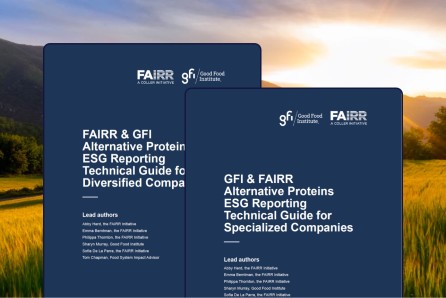
Alternative Proteins Framework
Framework Overview
About the Reporting Framework
The Alternative Proteins Reporting Frameworks have been developed in response to growing investor interest in alternative proteins and investors’ desire to measure and analyse characteristics of alternative protein companies and business lines. Until now, such assessment and analysis have been hindered by a lack of industry-specific measurement and reporting guidelines.
The frameworks co-developed by the FAIRR Initiative and the Good Food Institute (GFI) address this gap by serving as industry-specific tools public and private companies may use to report on the performance of their alternative protein businesses. Investors can use the frameworks to conduct due diligence on companies involved in alternative proteins and gain transparency into the related characteristics of such companies. The frameworks also serve as roadmaps for best practices within the industry.

Framework and Technical Guide Download
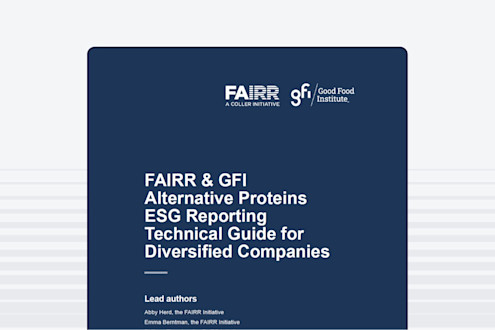
Diversified Framework
The FAIRR and GFI Alternative Proteins Framework for Diversified Companies ("Diversified Framework") is designed for companies that produce and sell a variety of products including alternative proteins. This framework covers retailers, manufacturers, and animal protein producers.
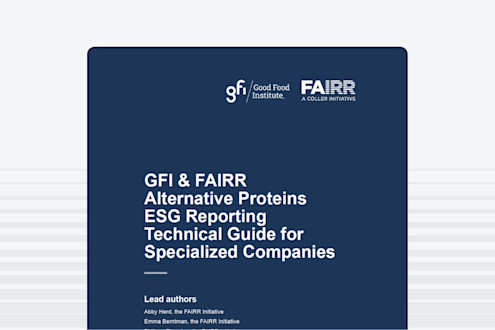
Specialized Framework
The GFI and FAIRR Alternative Proteins Framework for Specialized Companies ("Specialized Framework") is designed for manufacturers and ingredient suppliers of any size whose core focus is alternative proteins.

FAQs
How are alternative proteins defined in the framework?
How does my company decide which framework to report to?
Is it appropriate for specialized companies that do not have any commercially available alternative proteins product to report to the Specialized Framework?
Is there a minimum alternative-protein-related revenue level under which diversified companies should not report to the Diversified Framework?
Are these disclosures required by any regulatory entity and/or are being incorporated into mandatory reporting frameworks such as the SEC’s drafted Climate-Related Disclosures?
Will reporting to either of the frameworks enable my company to claim compliance with any of the established voluntary reporting standards (e.g., TCFD, SASB, or CDP)?
My company defines alternative proteins differently from how the framework does. How should I report?
If a company shares its disclosures with FAIRR or GFI, will the relevant organisation publish them?
Is there a benchmark built into the frameworks?
Feedback
These frameworks are the first iteration, and we aim to develop them further in the future. If you have any feedback on how we can improve the frameworks and technical guides please share your comments using the link below [please note, this link will take you to the GFI website].
We would also welcome any information you can share regarding how you are using the frameworks. Your comments will be used to make improvements, inform framework updates for future releases, and create case studies that will help enable us to encourage further adoption.

About the Collaborators
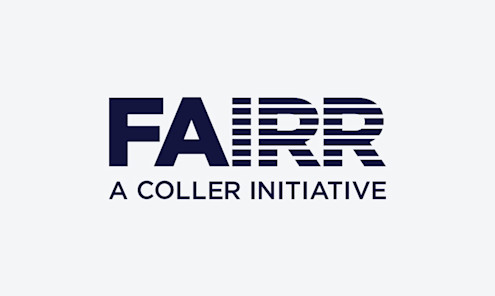
About FAIRR
Established by the Jeremy Coller Foundation, the FAIRR Initiative is a collaborative investor network that raises awareness of the material risks and opportunities brought about by intensive livestock production. With offices based in London, FAIRR provides cutting-edge research, best practice tools and collaborative engagement opportunities to help investors integrate these risks and opportunities into their investment decision-making and active stewardship processes.
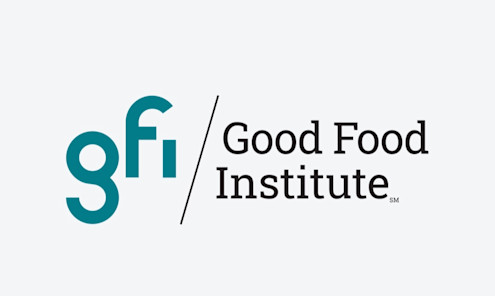
About GFI
Current meat production is unsustainable and The Good Food Institute (GFI) is a 501(c)(3) nonprofit working internationally to make alternative proteins delicious, affordable, and accessible. GFI advances open-access research, mobilizes resources and talent, and empowers partners across the food system to create a sustainable, secure, and just protein supply. Further information is available.

